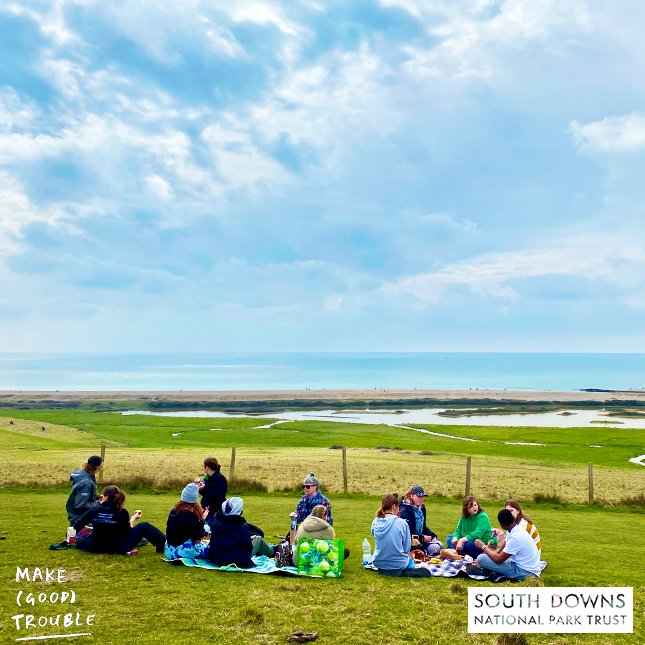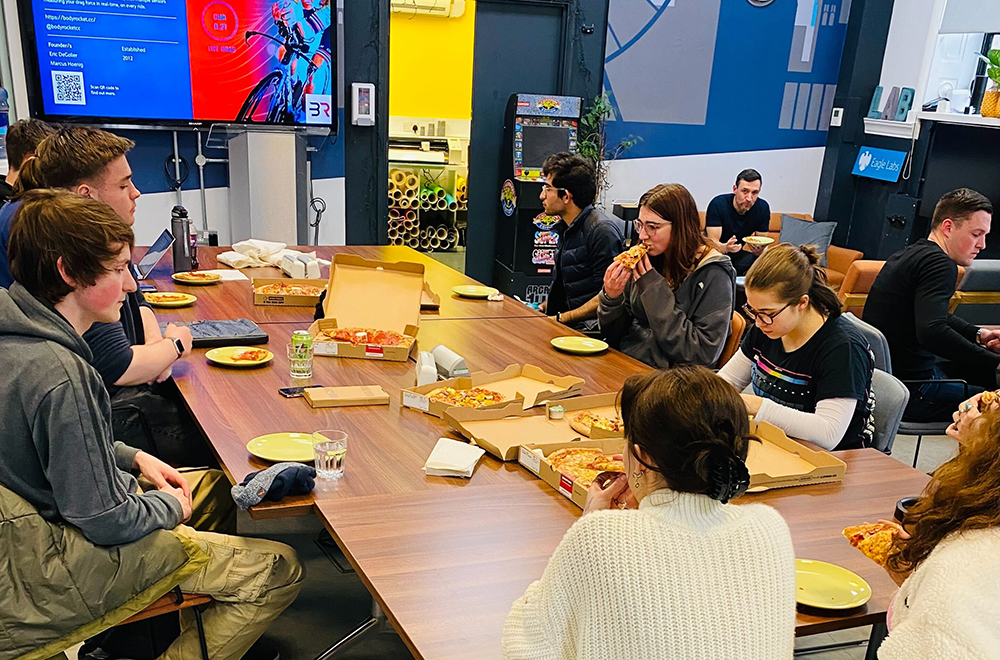Hello! Summer is just around the corner, and we have an exciting opportunity for 11–16-year-olds to join Make (Good) Trouble’s 3-day summer holiday club, where you can explore the great outdoors in the beautiful South Downs National Park.
😎🌳💦 Book now!
Let’s dive right into the details…
For two days we’ll be venturing into the South Downs National Park. Attendees will have the chance to explore the nature on our doorstep under the guidance of qualified woodland rangers from the Park. We’ll learn about the local flora and fauna, engage in nature-based activities, and immerse ourselves in the beauty of our surroundings.
On day 3, we’ll switch gears and head out onto the water for a paddle boarding session. The fantastic, qualified instructors at Buzz Active will be there to guide us through the experience which is always fun.
We’ll be providing picnic lunches plus cameras and audio equipment, so our adventurers can capture their experiences in images and soundscapes. Their images and audio may be shared and celebrated on our social media platforms and website, allowing you to showcase your talents to a wider audience.
When, where and how to book:
31 July 31 – 2 Aug 2023
South Downs National Park
For full details and booking click here
Here’s a quick rundown of the dates and activities:
31 July, 11am-3pm – Hillwalking exploration day: This is a perfect opportunity to delve deeper into the wonders of the Seven Sisters Country Park. We’ll engage in nature-based activities, enjoy breathtaking views, and have a picnic to recharge our energy.
1 August, 11am-3pm – Grassland management and a picnic: We’ll learn about the importance of grassland management and how it contributes to our ecosystem and a picnic lunch.
2 August, 10am-2pm – Paddle Boarding with Buzz Active: The highlight of our adventure will be a paddle boarding session. Children will develop their balance and coordination while having a blast on the water.
Our summer holiday club is part of East Sussex County Council’s Holiday Activity and Food Programme, which means that places are free to children in receipt of free school meals. We believe that every child should have access to exciting and enriching experiences, and we’re looking forward to seeing new and familiar faces this summer.
Make (Good) Trouble’s 3-day summer holiday club promises to be an unforgettable experience. Participants will not only have a fantastic time exploring the great outdoors but also have the chance to unleash their creativity through photography and sound recording.
To secure your child’s place or for more information, visit our page on the EEQU website. You can also browse other holiday clubs in East Sussex on the website.
⭐️ Find out more about our partners, South Downs National Park and Buzz Active.




